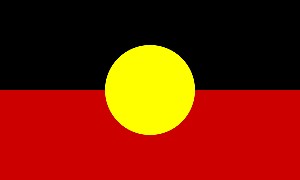Alternative ways of communicating develop skills and self-esteem

Nothing can hold 7-year-old William back. The Spotswood boy, who has Down Syndrome, can be found shooting hoops, spending time in the water, or travelling the world with his family, if he’s not at an 80’s music concert seeing his favourite bands: The Vengaboys and Aqua.
But having delayed speech can sometimes make it difficult for William to understand and be understood. So, when a speech therapist suggested looking into augmentative and alternative communication, or AAC, to grow his communication skills, Sharon, William’s mum, jumped at the idea.
Through an ongoing collaboration between Gateways Speech Pathologist, Jenna, his school and his family, William continues to improve his speech every day, and his mum couldn’t be happier.
‘I cannot tell you how great it has been to engage with Jenna and get William working on his speech. He has really come a long way with lots of new words and much clearer pronunciation,’ Sharon says.
‘Even having to do this in COVID on Zoom, William has connected really well with her and we can see so much improvement with his speech, even in the last few months,’ Sharon adds.
AAC are methods of communication that either supplement speech or become the primary form of communication in the absence of speech and aim to support individuals to communicate with others more effectively and participate in everyday activities.
They can include (but are not restricted to) word boards, communication books or speech generating devices, as well as unaided systems such as adopting facial expressions, body language or sign language.
The biggest challenge for families or individuals is often finding the most appropriate technology to suit their needs, as well as something that fits into the family’s lifestyle and routine and can grow with the individual as they develop.
Although Sharon initially found it challenging to find a speech therapist and introduce William to a new form of communication, consistent encouragement and a team effort have seen his skills and confidence improve significantly.
‘I could not ask for anyone better than William’s speech pathologist and his school. They have both been fantastic working with William who at times may not be fully focused on his speech lesson and want to do his own thing,’ says Sharon.
Nena, who began working with William in 2019 as the school’s integration aide, says William has progressed to become more familiar with certain words on the language board.
‘I have noticed changes such as excitement and a sense of immense pride when William can correctly demonstrate the knowledge of a word and its meaning by identifying it on his language board. It has been a joy to watch,’ says Nena.
She attributes a great deal of his growth to the hard work and persistency of William’s speech therapist, Jenna, as well as ‘her ability to create such an engaging environment during her speech therapy sessions,’ adds Nena.
As William’s skills develop so too does the medium of communication, which has seen him recently transition from the language board to using a language application on an iPad. He is already making great progress with using the words to identify his feelings; for instance, what he wants eat, or play with.
AAC supports must be both age-appropriate and enable the individual to be able to advocate for themselves. Nena says this is vital for a child’s development because it is important that they feel heard by their teachers and peers.
A therapist can then guide the client along the language stepping stones as their communication develops with the technology.
Learning alternative ways of communicating empowers children to feel confident and comfortable whilst engaging with their peers, family, and within their community.
‘As a family we could not be happier with Jenna and how William is going.’
Learn more about Gateways Support Services’ Individual Therapy for Children.



